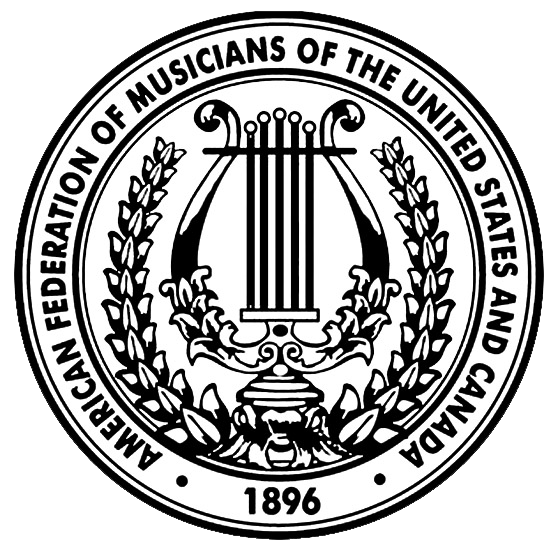EMSD Resource Center
AFM Musicians record radio, TV and online commercials, film and video game scores, and appear on live and pre-recorded TV. They perform on recordings—both in the studio and on live performances that are recorded. They work in recording and digital media have joined forces to fight for better pay, improved industry standards, healthcare, and a secure retirement.
It’s not unusual for musicians to hear one of their recordings at the movies or while watching TV, prompting the question, “Am I due money for my music being used?” The answer is yes if you are a union musician. Musicians recording under a union contract usually receive “new use” fees including pension benefits when their recordings are re-used.
New use, sometimes called re-use, is when a recording is used outside of its intended purpose. For example, music originally recorded for a CD is later used on a TV show or in a commercial triggering a new use payment. New use payments apply for all types of original recorded music, including sound recordings, TV and film scores.
AFM musicians also receive payment when their music is licensed for use in formats outside of its intended use (e.g, theatrical film scores released to “supplemental markets” such as DVD, pay-tv, streaming, cable, and in-flight use) or when excerpts of their music are used (“clip use”).
If you’re about to hire musicians for a recording and you’re uncertain about how to file a union contract to cover that work — or if you’re a musician being hired for a recording and don’t know what you’re supposed to get paid — you’ve come to the right place. We’ve reorganized our contract information to help employers and musicians alike find the resources they’re looking for better.
The AFM EMSD Resource Center is designed to steer you in the right direction!
We want this process to be as straightforward as possible, so if you’re new to this, it might help first to explain why there is such a variety.
At a baseline level, there are two main parameters that determine how a musician should be paid for recording work: 1) the type of service they are performing and 2) the manner in which the recording of that service will be exhibited.
The type of service is the most important factor. Studio sessions to record album tracks are different from studio sessions to record film scores, and both are very different from appearances on a late-night television program.
However, the manner in which the work will be exhibited is also important. Let’s say you’re budgeting for a new television singing competition series, which will require a house band to perform behind the competing vocalists. This type of work is clearly akin to our live television agreements. Still, different types of television have different broadcast patterns, so the terms for network television don’t fit for basic cable, public television, or premium channels like HBO. These formats each have their own agreement terms that fit the broadcast patterns required by those networks.
When you’re budgeting, you may not know how the work will be broadcast, and that’s okay. Having access to wage scales for every agreement may help you determine the financial viability of a specific format from the outset.
Where Do I Begin?
The EMSD Resource Center is organized by recording medium to help you find the correct agreement, wages, benefits, and filing instructions for your project. Designed to assist employers, local officers, administrators, and rank-and-file musicians, it is our hope that the step-by-step procedures and information will help simplify the process of filing new work under AFM contracts.
As always, if you have any questions regarding the information on this site, contact the AFM Local where the work will take place, or the EMSD.
